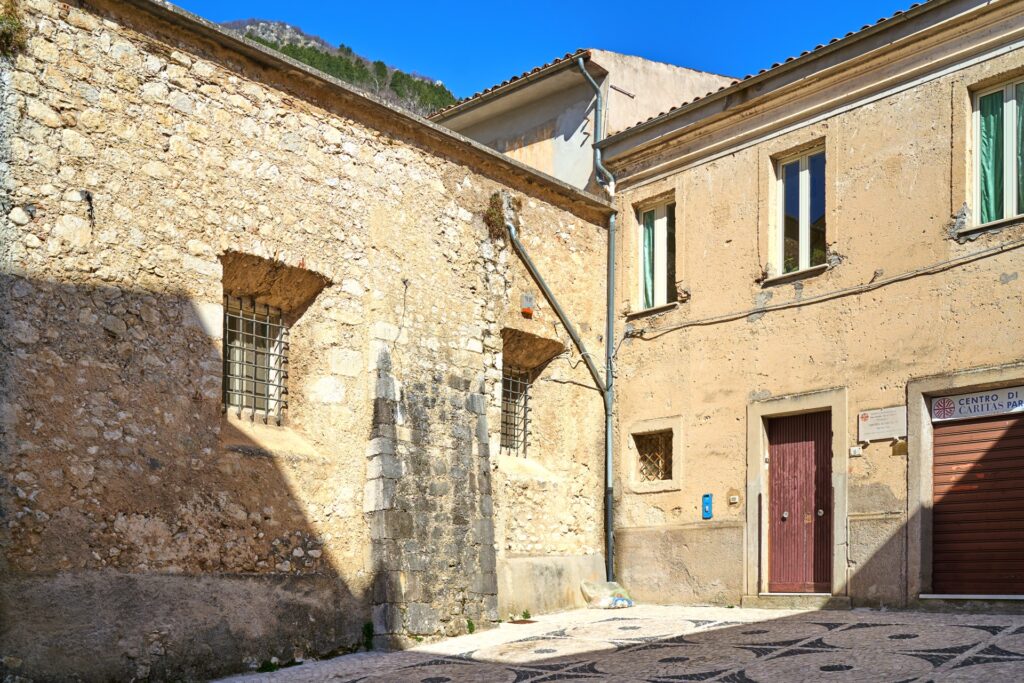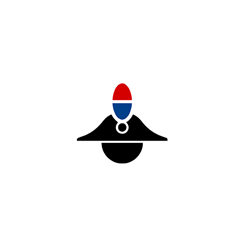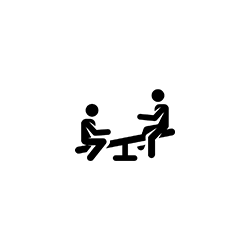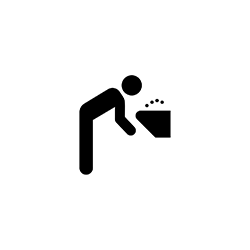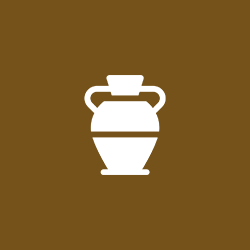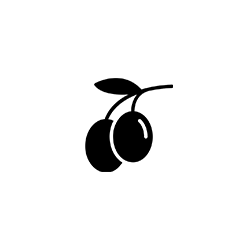Parsonage
Historical landmark
The Rectory, located next to the Church of St. Mary and St. Marcellus (Cathedral), was for centuries the residence of the parish priest and the place where the most important decisions for the Sandonatese religious community were made. Inside were several rooms for holding meetings, hosting Catholic organizations, conducting catechism, and archiving ancient documents.
During World War II, Abbot Parish Priest Don Donato Di Bona and Elvira Cellucci, the head of the local Catholic Action, planned to help former Allied prisoners and Jewish internees hiding in the mountains. Paying for all of them was Vincenzo Piselli, one of the parish priest's closest collaborators, who died in the Dachau death camp on March 7, 1945, as a result of the hardships and ill-treatment he endured.
The solidarity action of the parish
The parish made an important contribution in assisting former Allied prisoners and foreign Jews hiding in the mountains by providing the Poor Man's Kitchen to prepare meals and volunteers to take food to the mountains, such as Catholic Action youths.
Help for refugees was recalled by Gertrude Adler, one of the interned Jews: "We took refuge in the mountains, in two cottages. Behind the cottages was a cave, where we could find shelter in case of bombing. Our daily concerns were not to be discovered and to get food.
We also received food and help from the parish priest. Winter began and a thick blanket of snow covered everything: going down and up the mountain became uncomfortable."
The organization of aid
Refugee relief became a spontaneous, widespread phenomenon involving more than a hundred Sandonatese people. Catholic Action and the Parish were in the front line, coordinated by Don Donato Di Bona. Alongside him were a number of able collaborators: Elvira Cellucci, head of Catholic Action and the Poor Man's Kitchen, organized the supply of food to the former prisoners and internees; Rosaria Cardarelli, owner of a trattoria and cook in the Poor Man's Kitchen, oversaw the preparation of meals together with young Derna Salvucci; Vincenzo Piselli, blacksmith and Don Don Donato's collaborator for whom he carried out maintenance work in the Cathedral, was in charge of bringing food to the mountains.
The youth of Catholic Action.
The younger girls of Catholic Action distinguished themselves in bringing food to the refugees: officially heading to Pietrafitta to go wash clothes in the fountains, when they reached the vicinity in Vorga locality they would stop and leave baskets with food in the places where the refugees could retrieve it.
Clelia Mazzola, one of the parish priest's closest aides, recounted the difficulties of those days: "No help was coming to the parish. Don Donato, although he had a gruff manner, punctually intervened, with the help possible to him, in every situation of material need, but he never wanted to appear in the first person. In many families we spontaneously helped the hidden military. There was misery for everyone, but what little we could scrape together we shared with them."
The falsification of documents
Five employees worked in the registry office of the City of San Donato: appointees Carmela Cardarelli and Donato Coletti; and adventurers Rosaria De Rubeis, Maddalena Mazzola and Pasqualina Perrella. Carmela, Maddalena and Pasqualina were members of Catholic Action.
Documents were forged in the office to save Jews interned in San Donato. On April 6, 1944, Carmela Cardarelli and Pasqualina Perrella were arrested and interrogated by the Germans. These are Pasqualina's words, "I remember very well the large number of documents we falsified and we were all perfectly aware of the danger we were in, even though for us to do that thing was completely natural and we felt it as a moral duty, since Jews were part of our village society."
The example of Elvira Cellucci
Elvira was born in San Donato in 1895. Head of Catholic Action and organizer of the main activities of the parish, she was linked to Armida Barelli, Father Agostino Gemelli and various Vatican associations. Together with Father Donato Di Bona and Podesta Guido Massa, she created the Poor People's Kitchen in 1929.
The operation is described in the Deliberation of the Podesta of April 26, 1933: "A poor people's kitchen is established in this municipality, which provides for the daily administration of refreshments to the poor particularly children and old people. This institution has in its assets of about four years of existence the administration of more than 35 thousand refectories."
Elvira Cellucci died in 1980. On her grave she has her vision of life engraved: "In faith in God he lived his love for the Church, his commitment to Catholic Action, his service to mankind in defense of the ideals of justice and freedom."
Solidarity in support of the Polonie and the missions
In the early 1980s Maddalena Mazzola together with her sister Marietta, Donatina Pellegrini, Marcella Tata and other women from Catholic Action, supported several missions in Africa and the Polish underground organization Solidarność. The Mazzola sisters' house, halfway down Corso Mazzini, became a center for preparing and sorting boxes to be sent to women and children in Poland and Africa: the packages contained clothing and basic necessities.
Packages for Poland were also sent by Marcella Tata aided by her teenage son Giovanni Perrelli. Recalls Donatina Pellegrini, "Every week we packed, on average, five to 10 packages. It happened that when there was a shortage of clothes we would stay put for a few days and then resume. Every year we would send more than two hundred boxes. In more than 30 years more than six thousand packages were sent to Africa and Poland."
During World War II, Abbot Parish Priest Don Donato Di Bona and Elvira Cellucci, the head of the local Catholic Action, planned to help former Allied prisoners and Jewish internees hiding in the mountains. Paying for all of them was Vincenzo Piselli, one of the parish priest's closest collaborators, who died in the Dachau death camp on March 7, 1945, as a result of the hardships and ill-treatment he endured.
The solidarity action of the parish
The parish made an important contribution in assisting former Allied prisoners and foreign Jews hiding in the mountains by providing the Poor Man's Kitchen to prepare meals and volunteers to take food to the mountains, such as Catholic Action youths.
Help for refugees was recalled by Gertrude Adler, one of the interned Jews: "We took refuge in the mountains, in two cottages. Behind the cottages was a cave, where we could find shelter in case of bombing. Our daily concerns were not to be discovered and to get food.
We also received food and help from the parish priest. Winter began and a thick blanket of snow covered everything: going down and up the mountain became uncomfortable."
The organization of aid
Refugee relief became a spontaneous, widespread phenomenon involving more than a hundred Sandonatese people. Catholic Action and the Parish were in the front line, coordinated by Don Donato Di Bona. Alongside him were a number of able collaborators: Elvira Cellucci, head of Catholic Action and the Poor Man's Kitchen, organized the supply of food to the former prisoners and internees; Rosaria Cardarelli, owner of a trattoria and cook in the Poor Man's Kitchen, oversaw the preparation of meals together with young Derna Salvucci; Vincenzo Piselli, blacksmith and Don Don Donato's collaborator for whom he carried out maintenance work in the Cathedral, was in charge of bringing food to the mountains.
The youth of Catholic Action.
The younger girls of Catholic Action distinguished themselves in bringing food to the refugees: officially heading to Pietrafitta to go wash clothes in the fountains, when they reached the vicinity in Vorga locality they would stop and leave baskets with food in the places where the refugees could retrieve it.
Clelia Mazzola, one of the parish priest's closest aides, recounted the difficulties of those days: "No help was coming to the parish. Don Donato, although he had a gruff manner, punctually intervened, with the help possible to him, in every situation of material need, but he never wanted to appear in the first person. In many families we spontaneously helped the hidden military. There was misery for everyone, but what little we could scrape together we shared with them."
The falsification of documents
Five employees worked in the registry office of the City of San Donato: appointees Carmela Cardarelli and Donato Coletti; and adventurers Rosaria De Rubeis, Maddalena Mazzola and Pasqualina Perrella. Carmela, Maddalena and Pasqualina were members of Catholic Action.
Documents were forged in the office to save Jews interned in San Donato. On April 6, 1944, Carmela Cardarelli and Pasqualina Perrella were arrested and interrogated by the Germans. These are Pasqualina's words, "I remember very well the large number of documents we falsified and we were all perfectly aware of the danger we were in, even though for us to do that thing was completely natural and we felt it as a moral duty, since Jews were part of our village society."
The example of Elvira Cellucci
Elvira was born in San Donato in 1895. Head of Catholic Action and organizer of the main activities of the parish, she was linked to Armida Barelli, Father Agostino Gemelli and various Vatican associations. Together with Father Donato Di Bona and Podesta Guido Massa, she created the Poor People's Kitchen in 1929.
The operation is described in the Deliberation of the Podesta of April 26, 1933: "A poor people's kitchen is established in this municipality, which provides for the daily administration of refreshments to the poor particularly children and old people. This institution has in its assets of about four years of existence the administration of more than 35 thousand refectories."
Elvira Cellucci died in 1980. On her grave she has her vision of life engraved: "In faith in God he lived his love for the Church, his commitment to Catholic Action, his service to mankind in defense of the ideals of justice and freedom."
Solidarity in support of the Polonie and the missions
In the early 1980s Maddalena Mazzola together with her sister Marietta, Donatina Pellegrini, Marcella Tata and other women from Catholic Action, supported several missions in Africa and the Polish underground organization Solidarność. The Mazzola sisters' house, halfway down Corso Mazzini, became a center for preparing and sorting boxes to be sent to women and children in Poland and Africa: the packages contained clothing and basic necessities.
Packages for Poland were also sent by Marcella Tata aided by her teenage son Giovanni Perrelli. Recalls Donatina Pellegrini, "Every week we packed, on average, five to 10 packages. It happened that when there was a shortage of clothes we would stay put for a few days and then resume. Every year we would send more than two hundred boxes. In more than 30 years more than six thousand packages were sent to Africa and Poland."
Do you want to visit this attraction?
Book your vacation now.
Parsonage,
P.za Giustino Quadrari,
5,
03046 San Donato Val di Comino FR,
Italy
-
P.za Giustino Quadrari, 5, 03046 San Donato Val di Comino FR, Italy
Details
Suitable for
- Accessible to wheelchair users, Childrens, Couples, Families, Groups, Solo travelers
Best season to go
- All the seasons
Duration / time of visit
- Up to 1 hour
Type of tour
- This attraction is part of a guided tour, Small groups tour, Solo tour, Private tour
Are audio guides provided?
- Yes, upon request
Available languages
- English, Italian
Ticket price
- Does not require a ticket
